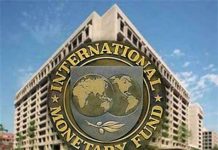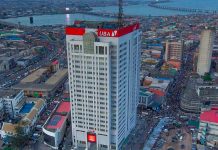Nigeria’s forex crisis, which has thrown the country’s economy into disarray – pushing the government to the limits in its search for a solution, has seen varying degrees of suggestions from experts, state and non-state actors proffering solutions.
Consequently, the Nigerian Presidential Adviser on Economic Affairs, Tope Fasua, has recommended a significant reduction in the number of Bureau de Change (BDC) operators in the country. He suggests reducing the current number of over 5,000 BDCs to approximately 200, which would amount to a 95% reduction.
He made this call while speaking at an economic policy event organized by the Abuja Chamber of Commerce and Industry. The event’s theme was “Unification of foreign exchange and the effect of fuel subsidy removal on the business community.”
Fasua, a prominent economist and the CEO of Global Analytics Consulting argued that the large number of BDCs creates challenges for the Central Bank of Nigeria (CBN) in terms of effective supervision. He attributed the irregularities in the foreign exchange market to the abundance of BDCs in the country.
“We need to do some structural reforms. For example, I believe we should reform the BDCs’ sector, make them stronger. You can’t manage over 5,000 BDCs selling money on the streets, it is not normal,” he said.
Fasua suggested that the CBN should provide incentives for both the BDC sector and banks to expedite the process of providing foreign exchange to Nigerians. He believes that with effective structural reforms and robust supervision, the CBN, backed by its reserves, can encourage the sector to facilitate quicker access to funds for individuals.
Furthermore, Fasua emphasized the need to clearly define the illegal forex market as a crucial step toward achieving stability in the official forex market.
Citing the United Kingdom and the United Arab Emirates, Fasua said that Nigeria’s 5,000 BDCs are more than needed, and should be curtailed to make their supervision easier for the central bank.
“We cannot manage 5,000 BDCs, maybe we should be looking at 100 or 200. In the United Kingdom as a tourism destination, they have 145 BDCs the last time I checked. In the UAE they have 130.
“So what are we doing with 5,000 BDCs? You will never be able to supervise them. How many staff would you need to look at their returns and check them? Therefore, you need large and well-established BDCs, as well as banks, to be able to fulfill the needs of the people. And then the government can be able to incentivize that market,” he said.
Nigeria’s forex crisis has spiraled nearly out of control as the government appears helpless in curtailing it. Several efforts by the CBN, including monetary policy reforms, have failed to tame the wildling tide.
Nigeria floated its currency, the naira in June – removing all control pegs around the dollar in a bid to have a unified exchange rate. However, the move has seen the naira nosedive further – racing towards N1,000 per dollar.
The Minister of Finance Wale Edun said to make progress, the country needs to clear approximately $6.8 billion in overdue forward payments in the foreign exchange market.
Economic experts have maintained that the solution lies in having sufficient forex liquidity. But currently, Nigeria is grappling with oil theft in the Niger Delta, which has reduced its oil output to 1.67 million barrels of oil and condensates per day, significantly jeopardizing its opportunity to boost its foreign reserves.
Nigeria’s oil production in the first eight months of the year falls short of the 2023 budget benchmark by more than 20 million barrels, representing a 15 percent deficit. These findings are based on the latest data from the Nigerian Upstream Regulatory Commission (NUPRC).










